|
|
|
 Jen Jen |
|
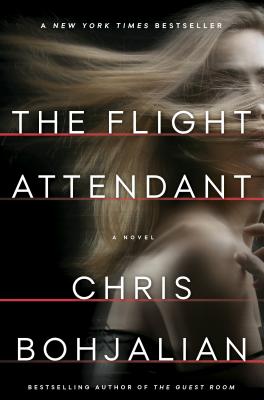
|
 |
The Flight Attendant
Chris Bohjalian
I’ve been listening to The Flight Attendant by Chris Bohjalian on libro.fm. Flight attendant Cassie wakes up in a Dubai hotel room with a rich stranger after a night of drinking. This isn’t all that unusual for Cassie, except this time, her date has been murdered. Cassie doesn’t think she committed the crime, but she can’t be absolutely certain. The audio book narrators (there are three) are good and it’s fun that one of them is Grace Experience, daughter of Chris Bohjalian!
|
| |
|
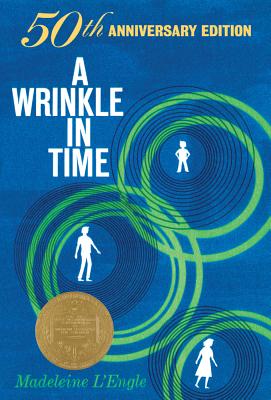
|
|
A Wrinkle in Time
Madeleine L’Engle
The Beagle Women’s Book Group will be reading and discussing A Wrinkle in Time by Madeline L’Engle. High-school-aged Meg and her younger brother Charles have been without their scientist father for the past five years, after he discovered how to travel to another planet. He has been held hostage there ever since. Meg, Charles, and their friend Calvin embark on an adventure to save Meg and Charles’ father. I haven’t read this book since I was a girl and I’m anxious to read it again as an adult and discuss it with the group!
|
|
|
|
|
|
|
|
|
 |
|
|
 Sally Sally |
|
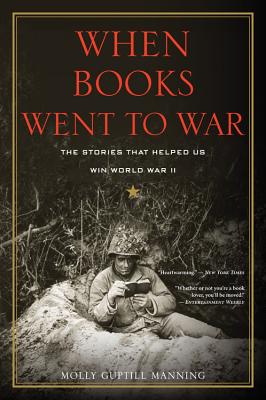
|
|
When Books Went to War
Molly Manning
The last issue of BookWomen Magazine had an article based on subscriber’s responses to the question, “What was the best book you read in 2017?” One woman’s choice was When Books Went to War. Remembering that we have that book at the store, I decided to read it. I liked it so well that it will be the first book the Sister Wolf Women’s group reads this summer. The book, which is non-fiction, is about a piece of our country’s history which I’d known nothing about. During World War II, the United States printed 140 million books in a special small format and sent them to troops at the front in both Europe and the Pacific. There was a two-fold reason for this Herculean effort: the books provided entertainment for the men as well as reminding them what they were fighting for. While the U.S. was providing books, the Nazis were burning books. I anticipate the book will lead to good discussion.
|
| |
|
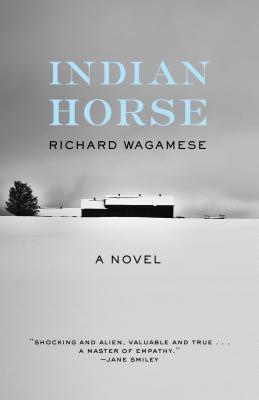
|
|
Indian Horse
Richard Wagamese
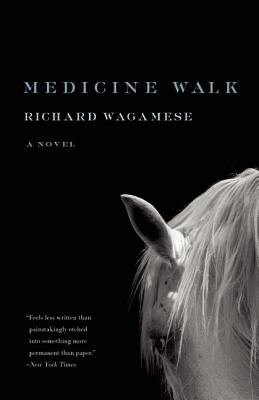 Richard Wagamese was a Canadian writer whose work was well known in Canada, but unavailable in the United States. Two years ago, Milkweed, the Minnesota publisher, brought out Wagamese’s book, Medicine Walk. It was warmly received across the United States, as well as at our store. As readers researched Wagamese, they learned that Indian Horse was considered to be his best book. We had many requests for it, but again, it was not available in the U.S. Milkweed has continued to publish Wagamese’s books, and last month Indian Horse was finally released here. Richard Wagamese was a Canadian writer whose work was well known in Canada, but unavailable in the United States. Two years ago, Milkweed, the Minnesota publisher, brought out Wagamese’s book, Medicine Walk. It was warmly received across the United States, as well as at our store. As readers researched Wagamese, they learned that Indian Horse was considered to be his best book. We had many requests for it, but again, it was not available in the U.S. Milkweed has continued to publish Wagamese’s books, and last month Indian Horse was finally released here.
It’s the story of Saul Indian Horse, an Ojibway child whose family retreated into the woods in an attempt to keep him with them, rather than being sent to a boarding school. Soon, the entire family was gone, leaving only Saul, who was soon sent to a boarding school which is breath-takingly brutal. Encouraged by a priest, Saul loses himself in hockey. His gift for the sport offers him a way out of the school.
The book moved me profoundly. It will be the book the Sister Wolf group discusses on June 6, and I look forward to our discussion.
|
| |
|
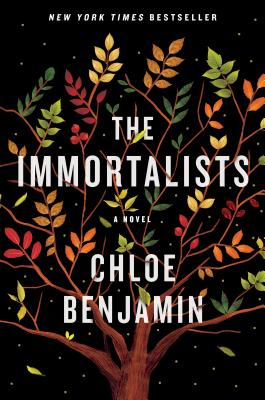 |
|
The Immortalists
Chloe Benjamin
I’ve been listening to The Immortalists, a novel, on libro.fm. The books deals with the question, “if you knew when you would die, how would you live your life?” in an engaging story. One hot summer afternoon in the ‘60s, the four Gold siblings seek out a fortune teller. They had overheard that the woman could predict the date of your death. Each of them met separately with the woman and received a date. The rest of the book follows the siblings, primarily one at a time. This is a debut novel, and I was impressed with Benjamin’s skill as a writer. I look forward to more books from her, and also to the paperback of this one. |
|
|
|
|
|
|
| |
|
|
|
|

Ann
|
|
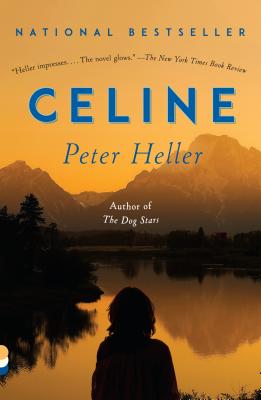 |
|
Celine
Peter Heller
Celine is a successful private detective who makes her living tracking down missing persons and often reuniting families.
In this story, she is hired by Gabriela, a young woman whose photographer father disappeared years ago. He was last known to be near the border of Montana and Wyoming. It was presumed that he had been mauled by a grizzly, but his body was never found. Celine and Pete, her husband/investigative partner, head to Yellowstone Park to see what they can find out. They are smart, funny, and very much in sync. The main story line is a mystery, one that someone clearly doesn't want solved. But it is so much more. On another level Celine is a story about families, especially fathers and daughters. It is also a story about loss and making sense of the past. Scenery, characters, and events are beautifully described. If you're looking for gentler mystery within a larger story, this is the book for you. |
| |
|
|
|
|
|
| |
|
|
|
|

Bob
|
|
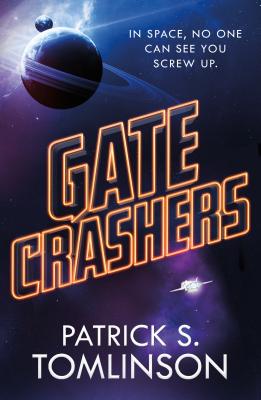
|
|
Gate Crashers
Patrick Tomlinson
When Jen and Sally brought me a signed advance copy of this book from a booksellers’ event, I knew it would be great science fiction—the author’s inscription said, “Certified Unicorn Free!” And it was! But that wasn’t the only reason to read this book (even though there is a spaceship on the cover.) Right off the bat, I opened the front cover and went right into the story, no goofy map of someplace that doesn’t exist, just right into the adventure with a touch of humor. I also loved the way it was written with characters that could really exist, now, dealing with their work-a-day problems. There’s an excellent paragraph that describes their spaceship and how ugly it is with hoses routed on the outside. There’s no wind resistance in space to rip them off so you put them where it’s convenient, which isn’t always pretty. Bravo for the insight. Another thing I liked was the humanness of the staff. At one point the crew is crowded together to hear the commander speak. She’s trying to get their attention, to no avail, when her executive officer pulls out a whistle which pierces the din and suddenly it’s quiet. Ha! Been there, done that (sort of.) The technology jump from now to then is believable and well thought out. Some of the “enemy” are large-sized without being so big that they couldn’t really exist or move. Again, well thought out.
The best recommendation I can give is that I’m really looking forward to Tomlinson’s next book.
Note: this book will be released June 26.
|
| |
|
|
|
|
|

Gail |
|
 |
|
|
| |
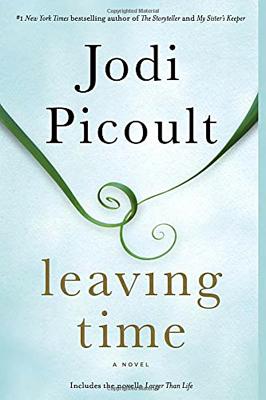
|
|
Leaving Time
Jodi Picoult
Jenna has been looking for her mother, Alice, since she disappeared 10 years ago. Jenna has saved up her babysitting money to hire help and hires an alcoholic private investigator and a psychic whose powers seem to have left her. Will they be able to help her? Jenna's mother was a scientist who studied grief in elephants. We find clues along the way as to where Alice might be. There are some fascinating chapters about the lives of the elephants. I have read several of Picoult's books and have never been disappointed. She has written more than 20 books and several have been best sellers. She is a great story teller and one always learns something, too.
|
| |
|
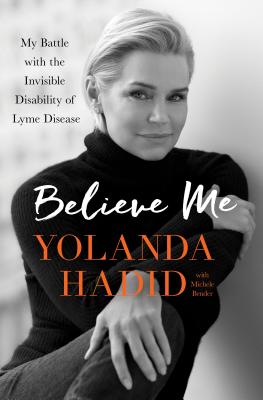
|
|
Believe Me: My Battle with the Invisible Disability of Lyme Disease
Yolanda Hadid
Yolanda Hasid writes of the struggle to first get the right diagnosis for her disease, and second, her tireless research into both western and eastern medicine to find relief from the debilitating symptoms. Since we live in an area where Lyme disease is prevalent, I think this was an important book for those looking for answers. My doctor son-in-law says if anyone comes to him with a variety of symptoms that come and go, he always tests for Lyme disease. The author feels that getting the word out is so very important to all. You may not agree with the steps she takes in her search to feel better, but you must admire her determination to find answers for herself and her two children who also suffer greatly. This is an important book on an important subject.
|
| |
|

|
|
Someday Home
Lauraine Snelling
Lynn lost her husband two years ago at the age of 54. She is still grieving and does not want to leave their family home. She finds two women to share the costs and chores as housemates. Each woman comes from different circumstances, but all seek a place to grieve, to laugh, and be renewed. Author Snelling is a favorite of Minnesotans, especially her series on the Red River Valley. I found this story an interesting alternative to the conventional ways of retirement. |
| |
|
|
|
|
|

Hannah |
|
 |
|
|
|
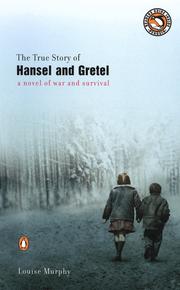
|
|
The True Story of Hansel and Gretel: A Novel of War and Survival
Louise Murphy
A Jewish family is desperately fleeing Nazis through a primeval forest in Poland. Their motorcycle is almost out of gas. A boy and girl are huddled in the sidecar. The children's step-mother, who is not evil, (an SS officer is the most evil character) persuades the father that the children have a better chance of survival if they go into the forest and try to find a sympathetic farmer while their parents draw the Nazis away. The children need Christian names to try to pass: the step-mother pulls the names Gretel and Hansel out of the air.
This is a dark telling of the classic tale with all of the main elements included in new ways: there's a bread crumb trail, a witch in an isolated hut (a crone with some gypsy blood who provides the nearby villagers with medical assistance), and a large oven. This is definitely not for children nor for readers looking for a cozy novel. But in addition to the horrors, there are moments of beauty and joy that are all the more uplifting because of the awful things that are happening to good people. |
| |
|
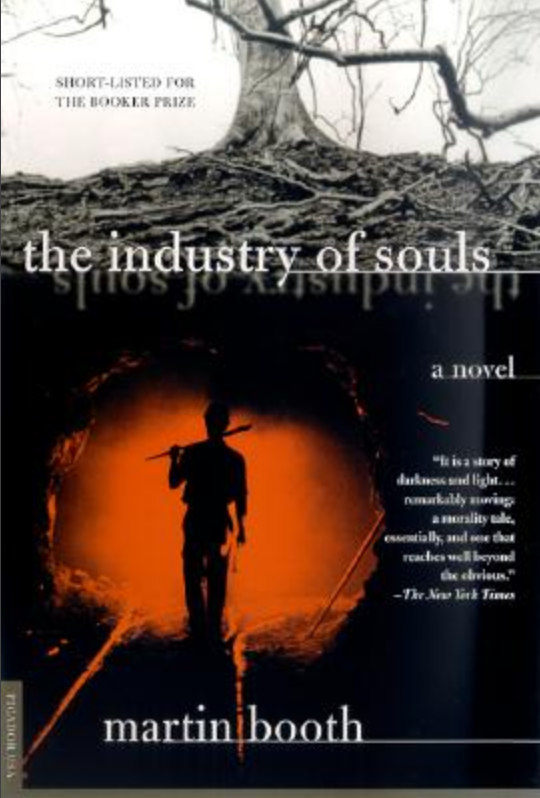
|
|
The Industry of Souls
Martin Booth
In the beginning, this book feels like Marilynne Robinson’s Gilead. A gentle old man is nearing death in a small rural village. However, he’s an Englishman who was falsely accused and spent 25 years mining coal in a Siberian gulag. He’s settled down in Russia with the family of a fellow prisoner. The book is beautifully plotted, quite suspenseful even when little is happening. The flashback scenes in the gulag are stunning. It’s about finding joy in hell through friendship and imagination and character. The book is remarkably reinforcing. |
| |
|
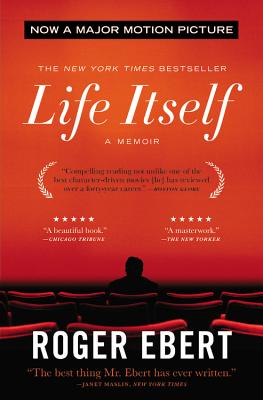
|
|
Life Itself
Roger Ebert
Ebert’s memoir has something for everyone. If you like to read about families or life in the mid-20th century Midwest, the early chapters are about that. If you’re interested in how luck and talent could make a journalism career once upon a time, that’s surely his experience. If you like to read about crazy Hollywood movie stars and directors, the middle of the book is very fun. If you like true romance, Ebert’s late marriage is for you. If you want to read about the spirit of a man who stayed positive when his jaw was removed and he looked grotesque, couldn’t eat or speak, and knew his days were numbered, the last chapters will move you. Me, my favorite chapter was the one about Gene Siskel, Ebert’s famous best enemy.
|
| |
|
|
|
|
|
| |
|
|
|
|

Tim |
|
 |
|
Fascism: A Warning
Madeleine Albright
I have always admired Madeleine Albright, as a wise, professional, experienced, truth-telling public figure, so when I saw her new book, Fascism: A Warning, I put all my other reading aside and paid close attention. She begins with a good dose (review) of history, to remind us where we’ve been. A wise move, since the present day-to-day revelations have numbed us into feeling that each new scandal erases all before it, through their sheer audacity and the shock that these unsavory events are REALLY happening. Facts themselves have come into question through the insistence on the newspeak, “alternative fact,” that anytime in the past even children would have understood as lies. Distinctions are deliberately blurred, so as to destroy faith in the Judiciary and objective journalism. We become bewildered and deeply uneasy and in this vulnerable state, fear is appealed to, by repetitive appeals to an ‘Us vs Them’ mentality. Race, religion, political leanings, ethnicity, any distinctive difference suffices. “Blame them, not me!” It’s worked before, and here we are doing the same thing again. My only surprise is how far we’ve already unwittingly gone down the rabbit hole. Fiercely sobering. Here’s a clear warning.
|
| |
|
|
|
|
|
| |
|
|
|
|
Guest Reviewer,
Lou
|
|
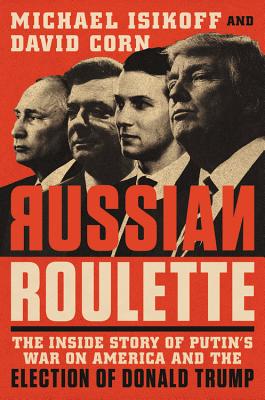 |
|
Russian Roulette
Michael Isikoff and David Corn
You asked me for my thoughts on this book. I finished it this morning and it has left me deeply disturbed by the goings on in our government. It supports my concerns but goes far deeper to reveal activities that are criminal.
The authors, Michael Isikoff and David Corn, are respected journalists. Isikoff has worked for the Washington Post, Newsweek, and NBC News. Corn is the Washington bureau chief for Mother Jones magazine and is an analyst for MSNBC. They point out that Russia (Putin) has cultivated Trump for six years, always holding the carrot in front of him of a Trump Tower in Moscow while holding blackmail documentation of unsavory activity during visits to Russia. It details illegal meetings and money transfers of all sorts with many in the Trump circle.
The book does not spare Ms. Clinton either, as the Clintons and their foundation are compared to an old-fashioned political machine. Their exorbitant speech honorariums have been followed by return favors that are not only immoral but probably illegal. Most of the book focuses on the misdoings of Trump, however.
Of interest is 15 pages of notes documenting meetings and interviews. |
Would you like to be a guest reviewer?
Email Sally at sally@beagleandwolf.com |
| |
|
|
|
|
|
— page top —
|
|

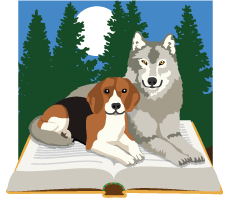

 Jen
Jen

 Sally
Sally
















 Richard Wagamese was a Canadian writer whose work was well known in Canada, but unavailable in the United States. Two years ago, Milkweed, the Minnesota publisher, brought out Wagamese’s book, Medicine Walk. It was warmly received across the United States, as well as at our store. As readers researched Wagamese, they learned that Indian Horse was considered to be his best book. We had many requests for it, but again, it was not available in the U.S. Milkweed has continued to publish Wagamese’s books, and last month Indian Horse was finally released here.
Richard Wagamese was a Canadian writer whose work was well known in Canada, but unavailable in the United States. Two years ago, Milkweed, the Minnesota publisher, brought out Wagamese’s book, Medicine Walk. It was warmly received across the United States, as well as at our store. As readers researched Wagamese, they learned that Indian Horse was considered to be his best book. We had many requests for it, but again, it was not available in the U.S. Milkweed has continued to publish Wagamese’s books, and last month Indian Horse was finally released here. 
